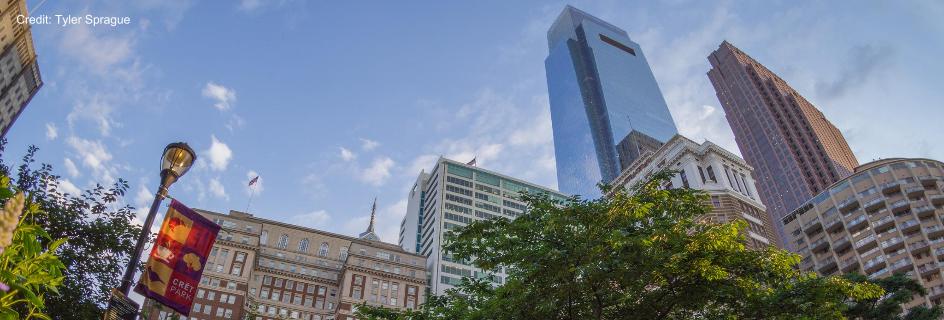- About GPA
- Global Events
- GLOBAL NEWS FROM PHL
- Global Directory
- World Heritage City
- Sustainable Development Goals (SDGs)
- Global Philadelphia Role on Sustainable Development Goals
- Completed Sustainable Development Goals
- SDG#1: No Poverty
- SDG #2: Zero Hunger
- SDG#3: Good Health & Well-Being
- SDG#4: Quality Education
- SDG#5: Gender Equality
- SDG#6: Clean Water & Sanitation
- SDG#7: Affordable and Clean Energy
- SDG #8: Decent Work and Economic Growth
- SDG #9: Industry, Innovation, and Infrastructure
- SDG#10: Reduced Inequalities
- SDG#11: Sustainable Cities and Communities
- SDG#16: Peace, Justice and Strong Institutions
- SDG#17: Partnerships for the Goals
- Press
Home ›
Cycling Culture Grows in Philadelphia
Posted on April 15, 2013

Adrienne E. Brown, for GPA -- When you think of the City of Brotherly Love, the first things that come to mind are typically the Liberty Bell and cheesesteaks. Not often does the topic of cycling come up, but the growing culture is changing the game.
Philadelphia sports history is always an ice-breaking conversation for a native Philadelphian. More recently, international sports have begun to make a play into the conversation.
You’ve seen the bike lanes and smoothly paved streets in the city. Biking is certainly a ubiquitous way to get around in Philadelphia. However, cycling isn’t as popular a sport in the city, but soon that likely won’t be the case.
Cycling is the art of competitively riding a bike either in a group or alone. There are plenty of bike clubs in Philadelphia making trips through state lines for a minimum of 50 or 60 miles per trip.
In fact, according to the Bike Coalition of Philadelphia, an advocacy group, the city has 205 miles of bicycle lanes. Also, The city of Philadelphia has installed approximately 1000 bicycle racks in Center City and surrounding neighborhoods. With all the new additions there is the big issue of bike safety.
Advocacy groups are organizations that work with the government in order to give a voice to bikers; giving them safer roads, bike lanes, and signs for cars to inform them of cyclers. Areas that don’t have these advocacy groups are at a disadvantage and aren’t welcoming to bikers.
Cindy Mannis, 50, President of the White Clay Bike Club, has been biking in the Delaware Valley area for over 25 years. She is impressed with the strides biking has made in her community over the years, but still thinks there is more to be done.
“I know both Philadelphia and Delaware have cycling advocacy groups. So maybe the impact of the biking advocacy groups is that they are changing travel structures and roadways, making bike lanes and putting up signs saying bikes have rights on the road and making it safer for bikes. It gives bikers a voice especially, in the tri-state area.”
Mannis thinks Philadelphia is a safe biking city. Compared to other cities embedded in the cycling world, Philadelphia is still building its reputation. Bringing awareness to the safety issues could be a way for Philly to step up its cycling reputation.
In the past few years, more and more bikers are relying on the roads, whether for everyday commutes or athletic activity. With the increase in cycling as a leisure sport in Philadelphia, the culture will likely be a growing topic in the city in years to come.
Image courtesy of www.designadvocacy.org








